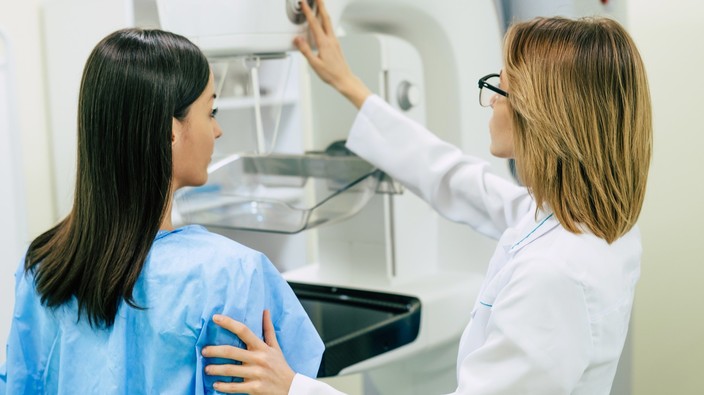annie slight first noticed a small lump in her right breast in 2012. she went to her gynecologist who told her not to worry—she’d had a mammogram less than a year before which had come back normal.less than a year later slight noticed the lump had started to grow and pushed for more testing. in 2013 she was diagnosed with stage two
breast cancer at the age of 42. slight was confused—how could the mammogram have missed her cancer? it wasn’t until after receiving her diagnosis that she learned she had dense breasts.breasts are mainly made up of two types of tissue, fibroglandular and fatty, and women with denser breasts have more of the former and less of latter. about 45 per cent of women have dense breasts, which increases their risk of
breast cancer and makes cancer difficult to detect on a mammogram, which is what happened to annie.dr. jean seely is a professor of radiology at the university of ottawa and recently lead a study which found canadian women who are categorized as having the densest breasts—around 10 per cent of women—were diagnosed with fewer cancers between screens (called interval cancers) if they had a mammogram every year. across canada mammograms are typically done every two years for women above the age of 50. but some canadian jurisdictions including ontario and the northwest territories offer annual screening to women with dense breasts.“based on our study data it’s clear there is a benefit in screening every year for women with the most dense breasts because there are far fewer interval cancers if you screen annually,” says seely.seely says breast density can only be determined with a mammogram and while this is an important place to start, women with dense breasts often benefit from additional screenings such as mris and ultrasounds. seely adds that like annie slight, most women aren’t aware they have dense breasts or that it’s a risk factor for cancer.the challenge is that a lot of contradictory and confusing information exists with respect to mammograms. each province and territory has its own guidelines around what age and how often a woman should be screened. while some recommend screening every two years once a woman hits 50, seely says annual screening once a woman reaches 40 is more appropriate.“twenty-four per cent of deaths from breast cancer occur in women in their 40s,” says seely. “we have many women who have asked to be screened in their 40s and their physician says no i’m not allowed to. these women are more likely to die from their breast cancer because they’re not getting the benefit of screening.”
there is also a common misperception that women with smaller breasts have a better chance of catching cancer early, but according to seely most mammograms detect cancer before it can be felt, which means breast size really doesn’t play into the equation.seely adds it’s important to know that if two or more relatives have breast cancer, screening should start at age 30 with both a mammogram and an mri, and that men aren’t exempt from keeping an eye on potential breast cancer. while it’s relatively rare—only one per cent of breast cancers occur in men—seely says they’re often in more advanced stages because men tend to wait longer to get examined.the big take away is that more education around breast cancer screening is critical says seely, especially considering only 20 per cent of women diagnosed with breast cancer have risk factors.“it’s really important for every woman to be aware of the risk of breast cancer and not to be alarmed about it, and to also be aware of what could happen when being screened,” says seely.
 3 minute read
3 minute read









